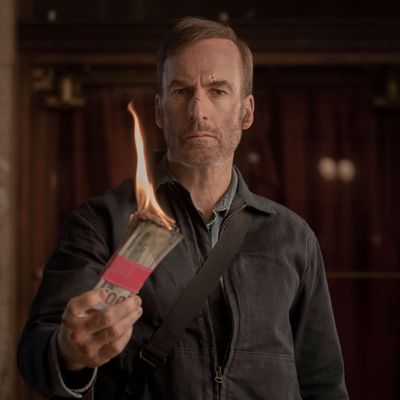
Nobody is a movie about men who need, who are even secretly hoping for, an excuse to commit violence. They’re suburban men, family men, men who should be beyond such things — but if they had no choice, if their homes or their families were in peril, well, who could blame them? When Hutch Mansell (Bob Odenkirk) opts not to fight back when his house gets broken into by armed intruders, everyone around him shakes their heads in barely disguised contempt at his perceived weakness, but also at the perceived waste. “Did you even take a swing?” one of the cops who responds to the call asks when he sees the golf club Hutch had armed himself with. “I wish they’d have picked my place, you know? Could have used the exercise,” his weekend warrior neighbor smirks. Most damning of all is Hutch’s father-in-law Eddie (Michael Ironside), who owns the manufacturing business at which Hutch works, and who says, “I’m thinking you did the best thing you could. I mean, you being you.”
These men are all action heroes in waiting in their own heads, but the conceit in Nobody is that Hutch genuinely is one. He’s a trained killer in nondescript dad drag, one who gave up the life in favor of a peaceful existence with his wife, Becca (Connie Nielsen), and their kids, Blake (Gage Munroe) and Abby (Paisley Cadorath). If this sounds a bit like the start of a certain Keanu Reeves franchise, know that Hutch also has a fateful run-in with the shiftless relative of a formidable Russian gangster who runs a neon-lit nightclub. Nobody shares the same screenwriter as John Wick and is produced by David Leitch, who, with fellow stuntman turned filmmaker Chad Stahelski, made the first John Wick before moving on to the equally fab Atomic Blonde. But it’s directed by Ilya Naishuller, whose 2015 debut Hardcore Henry was a 96-minute barrage shot entirely from the perspective of its protagonist — a movie with brashness to spare and the sensibility of a tween spitting slurs into his headset while on his eighth hour of a Call of Duty marathon. Naishuller doesn’t bring the elegant coherence that Leitch and Stahelski do to their fight sequences or manage the same touch of absurdity to lighten up the brutal excesses.
What he does have is Bob Odenkirk, and watching Odenkirk join the middle-aged action hero fold is pleasurable enough to make Nobody worth the while, even if it’s an obvious echo of other, better recent films. What else have you got to watch right now, anyway? Remember movies? Dumb, fun movies? Odenkirk may have done a bunch of well-documented training for the role, but he still looks like an unremarkable guy in Nobody, someone whose fitness and general badassery did not anoint him with accompanying cool. Working as a one-man clean-up crew was apparently as much a family business as his current paper-pushing gig. Hutch’s father, David (Christopher Lloyd), lives in a retirement home but gives off hints of a storied past, while Hutch’s brother, Harry (RZA), did his own opting out by faking his death, serving mostly as a confidant and adviser over the radio. Everyone else in Hutch’s life treats him as barely visible, though the film, not always convincingly, makes gestures at this being his fault as much as anyone else’s. Hutch has, in his own words, “overcorrected,” turning himself into the parent who makes breakfast no one eats, who sensibly takes public transportation, and whose real-estate agent spouse is the more successful one in their sexless marriage.
It’d be nice if Nobody contained any trace of irony or introspection to the way it connects Hutch’s malaise to its depiction of his emasculation, or acknowledged the enduring ugliness underlying those fantasies of getting to fight off intruders coming to take what’s yours. But Odenkirk doesn’t play Hutch as a supercharged version of an angry white man looking for an excuse to shoot someone. Instead, he approaches the character as someone who misses doing the only thing he was good at, even if he doesn’t miss the life of isolation and secrecy that accompanied it. The first time his character heads out into the night, it’s to retrieve something he believes was stolen from his home in the robbery — a mission that leaves him regretful and hating himself even more. It’s on the bus ride home that he has an encounter with a group of drunken hooligans, a run-in that will spark an escalating battle with a sociopathic criminal big shot named Yulian (Aleksey Serebryakov). But there on the bus, watching those would-be toughs harass a young woman and exude trouble, Hutch starts smiling. It’s the grin of an addict committing to breaking sobriety after years. It’s the grin of someone who has finally found himself in a situation in which he has no choice but to commit violence, and the relief on Odenkirk’s face is wonderfully complicated — enough to want him to try action out again, next time in a movie that’s more than half-baked.


